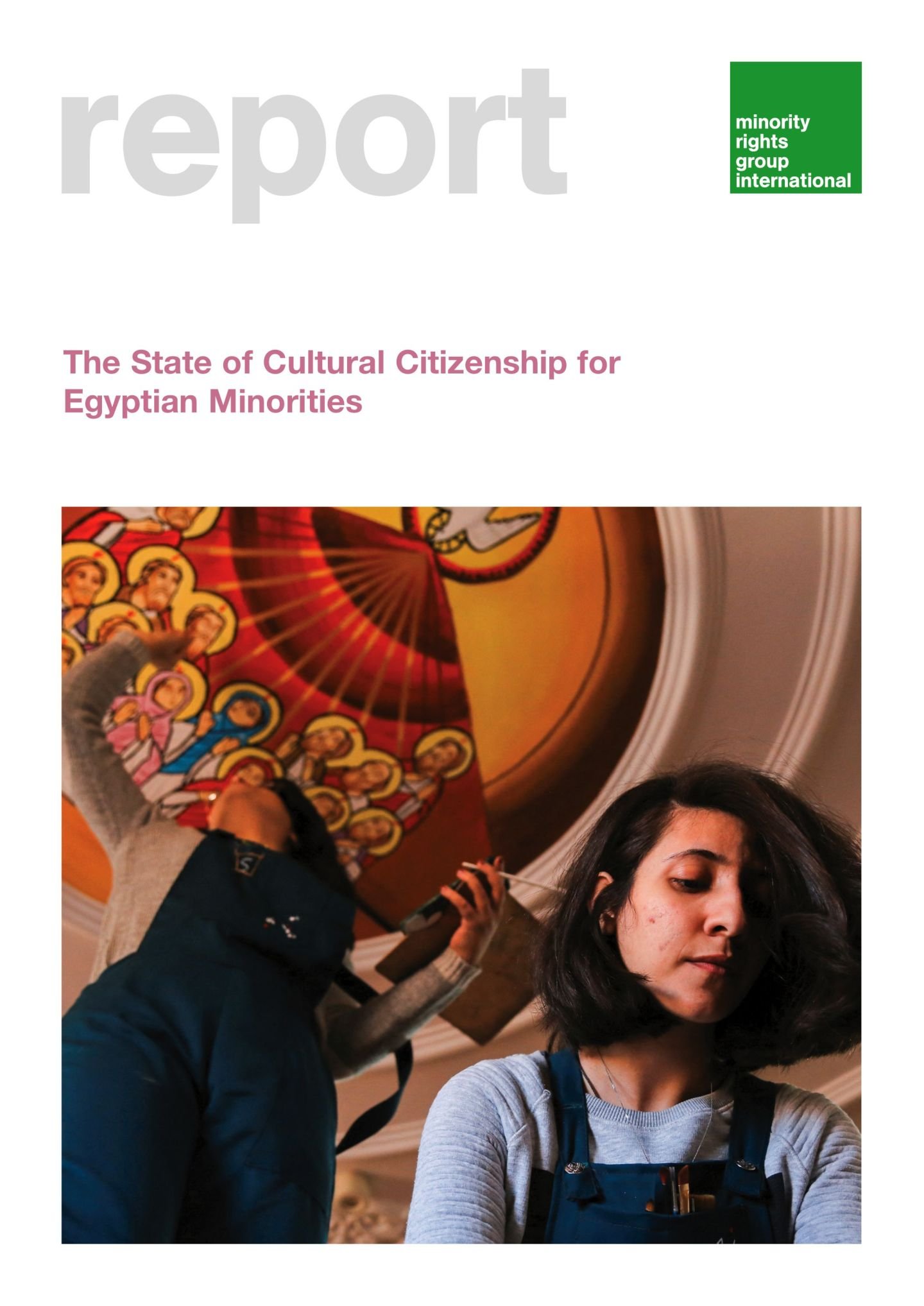
The State of Cultural Citizenship for Egyptian Minorities
This report argues for the need to reframe the concept of citizenship, as expressed by the Egyptian Constitution and state institutions. The existing official narrative champions a single cultural identity. In contrast, the report issues an urgent call for the recognition and equal protection of the cultural rights of all the different religious, ethnic and linguistic communities making up Egyptian society.The report considers the situations of religious minorities in Egypt, such as Christians across different denominations, Muslims (Shi’a, Ahmadis and Qur’anis), Jews, Bahá’ís and atheists. Furthermore, it includes an assessment of the cultural rights of ethnic minorities such as Nubians, Amazigh and Sinai Bedouins.Chapter One deals with the question of cultural citizenship as it is enshrined in the Egyptian Constitution and reflects on a number of shortcomings in terms of a lack of inclusivity in the definitions of citizenship to include cultural citizenship, particularly in terms of the cultural rights of religious and ethnic minorities. In Chapter Two, the authors argue that ethnic minorities are often misrepresented as a threat to nationalist notions of Egypt as a single and homogenous society. This reinforces their marginalisation from participation in political and public life, leading to serious threats to the security of minority activists. The securitisation of minority cultures can be seen in the treatment of linguistic rights for Egyptian Nubians and Copts, as well as the gaps in the Egyptian school curriculum regarding their culture and history. The chapter then goes on to discuss the cultural rights for Amazighs in Siwa, with a focus on the status of Amazigh women.Chapter Three deals with the subject of minority rights in relation to cultural heritage and business. Business and tourism development along the Nile is discussed in terms of the negative impact of hydroelectric dams, reservoirs and tourism on Nubian villages and the cultural rights of Nubians. The chapter then discusses the case study of the destruction of the remains of the historic Coptic Abu Daraj Monastery near the Red Sea. Chapter Four covers the issue of the prosecution of religious beliefs and violations of freedom of expression among Christians, Atheists, Shi’a Muslims, Ahmadis, and Qur’anists, particularly with regards to current legislation. Chapter Five touches on the issue of hate speech against minorities with regards to domestic legal framework, including the Penal Code, and hate speech in Egyptian public life more broadly.An extensive list of recommendations to the Egyptian government is included in this report, which includes:
- Amendment of the 2014 Constitution to recognize the rights of persons belonging to minorities, expanding the recognition of cultural rights, and protecting their identity and heritage.
- Urging the Egyptian authorities to adopt a constitutional article that recognizes the right of linguistic minorities to learn their own languages and to have them included in educational curricula at different educational levels and taught in their own schools.
- Recognize the right of members of linguistic minorities to carry out their own educational activities to teach their own languages.
This resource is an excellent point of reference for lawyers, activists, campaigners and community leaders seeking to advance cultural citizenship and cultural rights in Egypt.